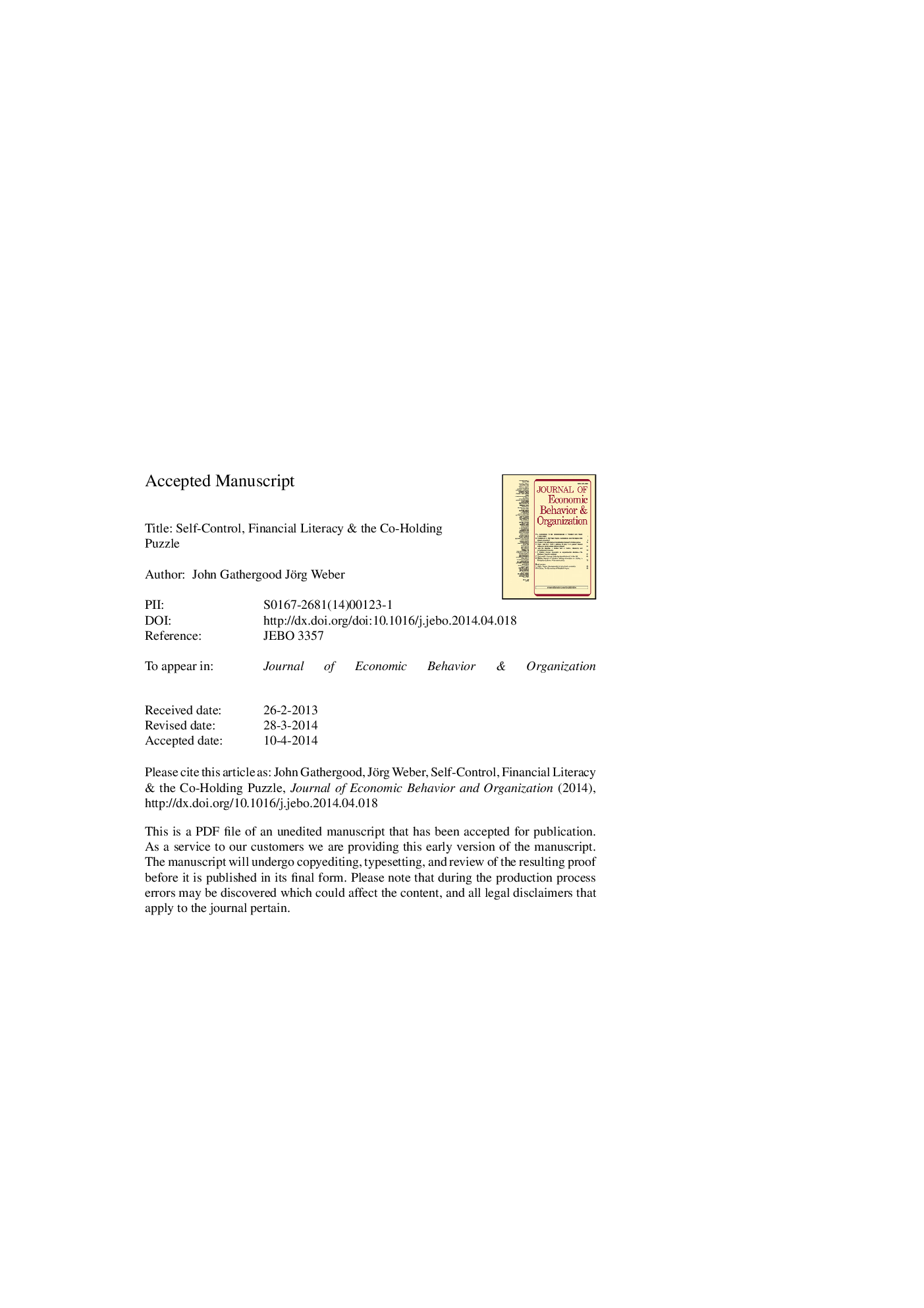| Article ID | Journal | Published Year | Pages | File Type |
|---|---|---|---|---|
| 10437648 | Journal of Economic Behavior & Organization | 2014 | 30 Pages |
Abstract
We use UK survey data to analyze the puzzling co-existence of high cost revolving consumer credit alongside low yield liquid savings in household balance sheets, which we name the 'co-holding puzzle'. Approximately 12% of households in our sample co-hold, on average, £3800 of revolving consumer credit on which they incur interest charges, even though they could immediately pay down all this debt using their liquid assets. Co-holders are typically more financially literate, with above average income and education. In most estimates co-holding is also associated with impulsive spending behavior on the part of the household. Our results provide empirical support to theoretical models in which households co-hold as a means of managing self-control problems.
Related Topics
Social Sciences and Humanities
Economics, Econometrics and Finance
Economics and Econometrics
Authors
John Gathergood, Jörg Weber,
